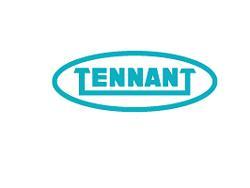BBB Takes Issue With Tennant Advertising
New York, NY, April 2, 2012 -- The National Advertising Division of the Council of Better Business Bureaus has recommended that Tennant Company, a manufacturer of commercial floor cleaning equipment, discontinue certain claims promoting the superior performance of the company’s “ec-H20” technology.
The claims at issue were challenged before NAD, the advertising industry’s self-regulatory forum, by Nilfisk-Advance, Inc., a competing manufacturer of commercial floor cleaning equipment.
Claims at issue included:
· ec-H20 “electrically converts water into a superior cleaning solution.”
· “Independent studies show that ec-H20 outperforms [many] conventional chemicals.”
· “ec-H20 technology makes water perform like a powerful detergent.”
· “Tennant ec-H20 is proven to reduce environmental impact by up to 98%”
In advertising, Tennant said that its ec-H20 floor scrubbing machine converts plain water onboard through electrolysis into an environmentally safe cleaning agent having special, detergent-like properties to clean the floors of large commercial operations.
Further, the advertiser asserted that it had permanently discontinued some of the claims at issue, prior to the challenge, including “Tennant’s ec-H20 is proven to reduce environmental impact by up to 98%” and “ec-H20 technology makes water perform like a powerful detergent.”
Tennant contended that the remainder of the claims were supported by competent and reliable third-party testing.
NAD noted in its decision that there is no single consensus industry standardized test designed to determine how “clean” a floor surface is or how to test for and measure cleaning performance. Further, NAD noted, there is wide variability among the types of soils that appear on the floors of commercial customer facilities.
NAD acknowledged that the scientific analysis and collective testing evidence provided a foundation for the utility of the ec-H20 technology in commercial scrubbers and for its general efficacy as a cleaner. NAD acknowledged that two of the advertiser’s tests provided a basis for the chemical mechanism of ec-H20 as a cleaner.
NAD determined, however, that the advertising communicated a message of superior cleaning performance which was not supported by the evidence of comparative testing in the record.
NAD found that while one test which compared ec-H20 technology against five different cleaners demonstrated that the ec-H20 technology produced similar results to the detergent based method for the removal of heavy stains or common soils, the ec-H20 technology was less effective when the soil load was very heavy or where the soil was difficult to hydrate.
